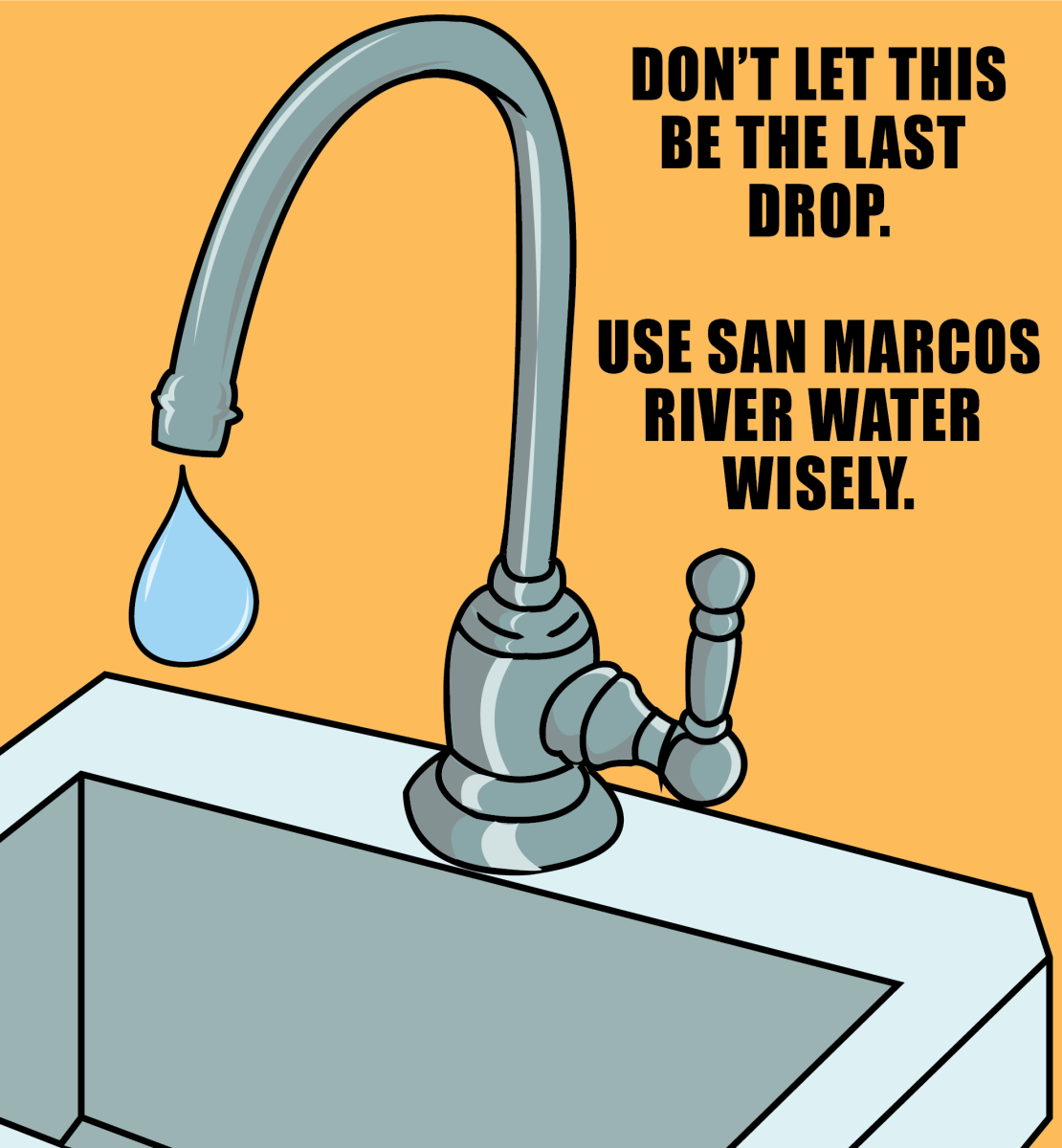As students of Texas State, we are fortunate to live on one of the most incredible natural occurrences in Central Texas: the Edwards Aquifer. The aquifer is an underground reservoir providing drinking water for 1.7 million people in Central Texas. It is imperative to the people, animals and spring systems that aid the flow of the San Marcos River.
As of April 6, the water level inside the Edwards Aquifer has reached its second lowest point in recorded history, and this is due to the prevailing drought that is affecting Central Texas. Living in San Marcos, and subsequently, on the aquifer, means taking action to conserve water can make a difference; therefore, it must become a priority.
The springs that make up the San Marcos River are one of the great marvels of the community, and they all channel water from the Edwards Aquifer. However, according to the Edwards Aquifer Authority, the 10-day average of spring flow recorded is 86 cubic feet per second. This number is alarming because spring flow is usually at an average of 130 cubic feet per second.
Low spring flow has a trickling effect on many aspects of the San Marcos community. The San Marcos River’s aquatic plant and animal life largely depend on stable spring flow, especially the endangered species that live in the river. Texas Wild Rice, the Texas Blind Salamander, the San Marcos Salamander and Fountain Darters are all delicate species that rely on stable spring flow and are threatened should that flow decrease further.
San Marcos residents are also affected by the low aquifer levels and the drought as the city population and water demand increase. In addition, climate change threatens more extensive and severe shortages in Central Texas.
In an email to The Star, Sam Massey, glass bottom boat manager at The Meadows Center for Water and the Environment at Texas State, said the low aquifer levels impact the city’s water supply.
“San Marcos gets about a quarter of its municipal water supply from the Edwards Aquifer, which is the same source that supplies the springs and river,” Massey said. “The most important thing for dealing with drought is having communities and institutions that plan for drought and have measures in place to meaningfully sustain water supplies.”
In the face of these alarming environmental challenges, there are measures that students of Texas State and residents of San Marcos can take to help alleviate the demand for aquifer water. Simple domestic activities, such as fixing leaks, turning off faucets, dialing back dishwasher and washing machine use, rainwater harvesting and taking mindful showers are all ways we can conserve water in our homes.
For students who live in dorms, water conservation can generate fewer dirty dishes. Students can use reusable water bottles and bring them to dining halls. Also, only use washing machines when you have a full load and report any leaks to maintenance.
Most commercial car washes in San Marcos use a water recycling system and many self-service car washes utilize low-flow spray hoses. This is due to the San Marcos Code of Ordinances section 14.121, which implements measures to conserve water in the city. Therefore, opting for a commercial car wash instead of excessive hose water is another mindful way to utilize water here in San Marcos.
Conserving water creates a ripple effect. Alleviating some of the demand on the Edwards Aquifer can help combat the drought-imposed issues facing aquatic plant, animal and human life that rely on the San Marcos River and springs.
Doing what we can as students to monitor our water usage while cleaning, taking showers and watering our lawns seems small, even futile, but these ripple effects allow us to make a difference and preserve the future of our city’s incredible nature.
-Faith Fabian is an English freshman
The University Star welcomes Letters to the Editor from its readers. All submissions are reviewed and considered by the Editor-in-Chief and Opinion Editor for publication. Not all letters are guaranteed for publication.
Opinion: Water conservation needs to be a priority
May 1, 2023
Donate to The University Star
Your donation will support the student journalists of Texas State University. Your contribution will allow us to purchase equipment and cover our annual website hosting costs.



















